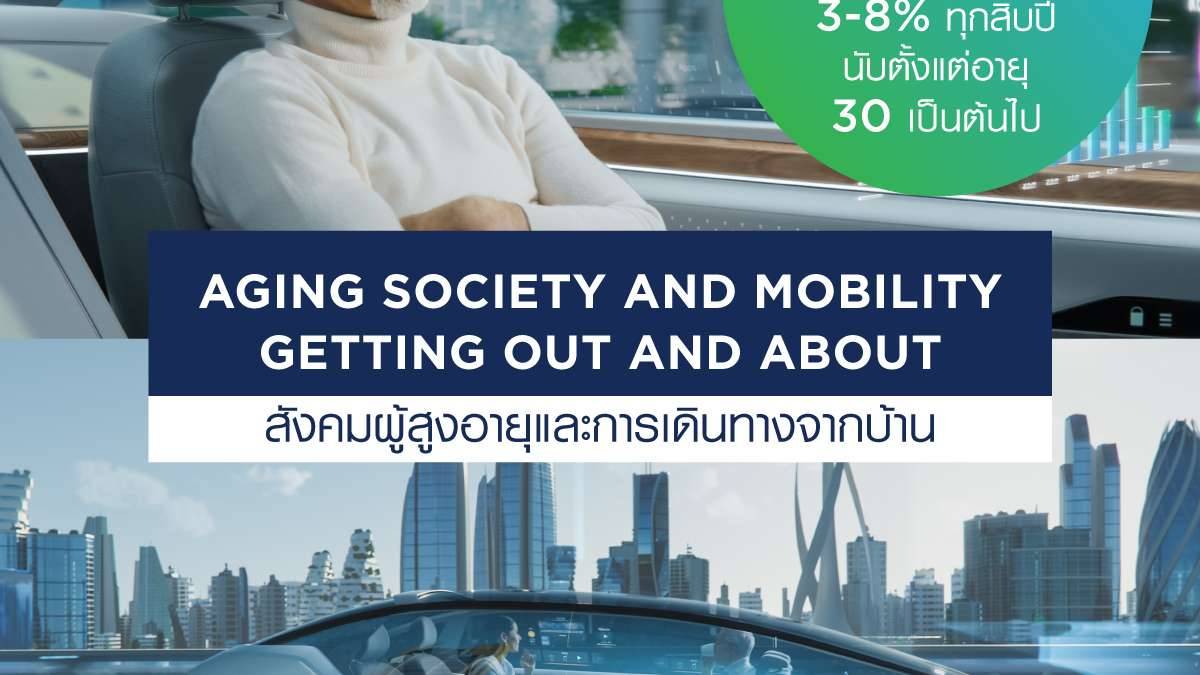
Aging society and mobility getting out and about
ARTICLES | Aug 02, 2024
How the Metaverse will Help Older Adults
The world will be an advanced aging society by 2030, according to the United Nations (UN). Our average age is rising and our lives will change.
Mobility is an area that will be heavily impacted.
The coronavirus pandemic made people adapt to technology and stay home. But many of us, even the elderly, still want to travel and see sights.
Physical limitations are a severe barrier to tourism for the elderly. Older adults are more likely to experience decreased body control such as joint problems. Bone and muscle loss are also a concern, since they shrink 3-8% every decade after 30. Older adults are more likely to have problems walking, driving, and getting around in other ways. More than 48% of those aged 80 or over find it hard to go to a supermarket near their home, up from 20% at 60-69.
Being unable to get to where you want affects the happiness and well-being of older adults around the world.
Research since 2019 has highlighted the need for autonomous vehicles for the elderly, not just for essential journeys but also tourism. But challenges remain in many cities worldwide. City planning and traffic infrastructures are not ready for these cars.
Traveling in the metaverse with virtual reality (VR), augmented reality (AR), mixed reality (MR), and extended reality (XR) may be the solution to tackle loneliness and boost mental health. Traveling with such technologies lets older adults go anywhere without limits. They don’t need to face risks outside the house. Their journeys are also free from time or space constraints. They can travel back to nostalgic places or go to the future in the blink of an eye.
A study into social media use in the United States found that older adults on Facebook climbed to 32% 2018 from 18% in 2011. Older people aren’t lagging in technology or social media. They can interact with loved ones in both the physical and virtual worlds. They can, of course, be a crucial market too.
Implications for the future
- Emerging business models and services related to the elderly, both in the physical and virtual worlds, such as using VR/AR technology to organize virtual tours, such as historical and cultural tourism and sightseeing.
- The tourism industry, marketers, and offline event teams will face disruption since seniors and families go outside less. Stores must have an online storefront. Tourist attractions need to focus more on their online platforms. They may even create a metaverse attraction to invite people to experience it physically.
- People will travel less in the physical world and more in the virtual world. People tend to expect extremely convenient transportation and traffic services. Each outing must be able to complete many tasks in one day. Mixed-use projects will be a new opportunity in real estate.
- Welfare and service standards for the elderly will be increasingly discussed in both the physical and virtual worlds, such as the availability of suitable ramps for wheelchairs in public areas, guidance function and elderly mode enabled in social media and online platforms.
- Research of virtualization and social media use in the elders and other ages needs to be studied, especially its effect on health, the brain, and physiological response.
- Governments need to issue policies to improve the quality of life for all the elderly in the future, such as online doctor visits without leaving home, coupled with in-time emergency ambulance services.
Reference:
-Bherer L. (2015). Cognitive plasticity in older adults: effects of cognitive training and physical exercise. Annals of the New York Academy of Sciences, 1337, 1–6. https://doi.org/10.1111/nyas.12682
-Department of Economic and Social Affairs Population Division. (2019). World Population Ageing 2019 Highlights. Population Division Publications. Retrieved February 11, 2022, from https://www.un.org/development/desa/pd/sites/www.un.org.development.desa.pd/files/files/documents/2020/Jan/worldpopulationageing2019-highlights.pdf
-Kiger, P. J. (2018, May 3). Older adults' use of Facebook continues to grow. AARP. Retrieved February 11, 2022, from https://www.aarp.org/home-family/personal-technology/info-2018/facebook-older-americans-privacy.html
-Nestlé Health Science. (n.d.). Maintain mobility as part of healthy aging Retrieved February 11, 2022, from https://www.nestlehealthscience.com/health-management/aging/maintaining-mobility-as-part-of-healthy-aging
-Satariano, W. A., Guralnik, J. M., Jackson, R. J., Marottoli, R. A., Phelan, E. A., & Prohaska, T. R. (2012). Mobility and aging: new directions for public health action. American journal of public health, 102(8), 1508-1515. https://doi.org/10.2105/AJPH.2011.300631
Discover more about us at https://web.facebook.com/FutureTalesLABbyMQDC/or follow us at https://twitter.com/futuretales_lab











